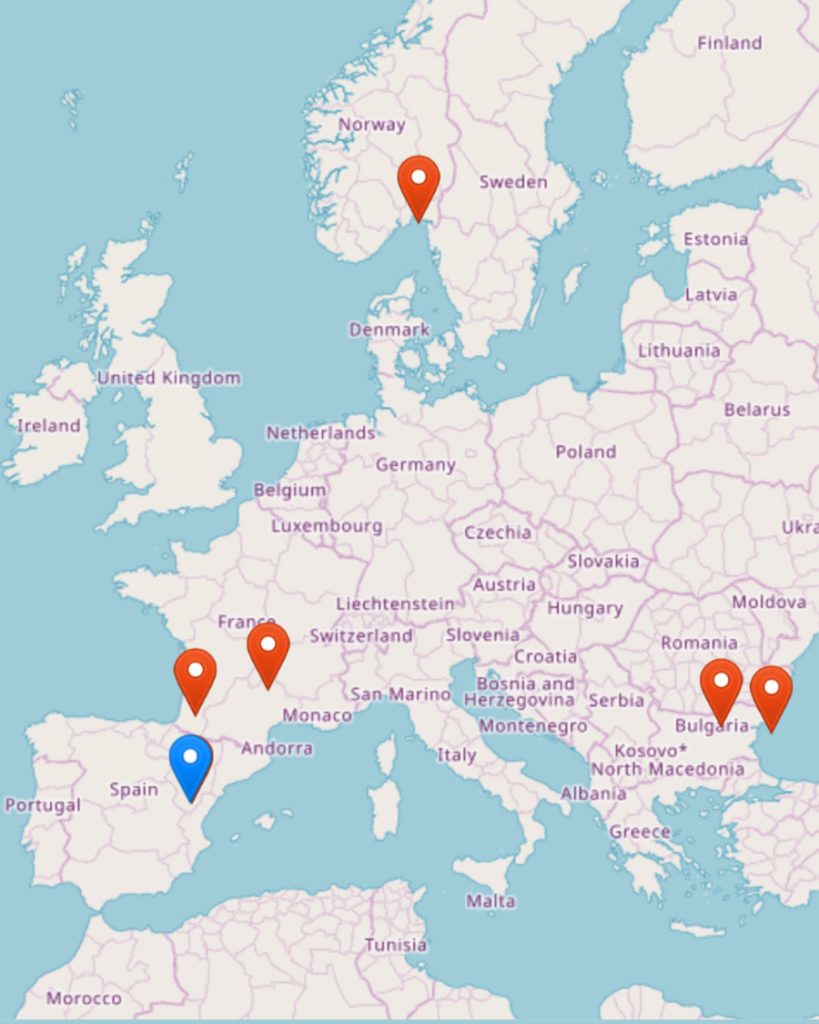About
The Project
Digital language and communication training
for EU scientists
Study of digital science communication practices
We will design a semi-structured interview protocol and a focus group protocol to collect relevant qualitative data on current practices on public communication of science on the Internet.
We will analyse the data from the interviews and focus groups and identify challenges in digital communication and learning/training needs.
Based on these data, we will create video testimonials on researchers’ communication practices. We will also provide relevant indicators of research productivity and social networks metrics to track female leadership among the population of scientists that will be interviewed.
Development of digital training resources
Our purpose is to develop digital resources and instructional materials for training researchers in digital science communication.
We will create diverse resources and materials of different formats to meet diverse needs of scientists (from different academic disciplines, countries, educational/professional systems and infrastructures).
These resources and materials will be aligned with EU frameworks: Common European Framework of Reference in Languages (CEFR) and the Common Framework of Reference in Intercultural Digital Literacies (CFRIDiL).
A sustainable virtual infrastructure will be created to support the instructional materials and resources.
Piloting and implementation of training
We will pilot the instructional materials and resources for training STEM scientists in the first course type (online course) and also non-STEM scientists.
We will coordinate the implementation of the courses and the MOOC, measuring the impact of training on the participants of the first course type by tracking quantitative indicators of their scientific research productivity and altmetric (alternative metrics) indicators regarding their use of social networks.
We will ensure dissemination of project-related information and project outcomes to reach various categories of stakeholders. We will also organise several multiplier events and activities over the duration of the project.
Development of technological infrastructure
We will provide an e-learning platform that will make resources available to the European research community, developing and implementing an online platform to host and display the course and the training resources.
We will also develop a infrastructure to host the courses created by the project and will implement the necessary tools to know and assess the scope of the project’s training offer.
This platform will be developed as a user-friendly, inclusive and sustainable technological environment
Meet the DILAN consortium

The partners of this consortium are:
● CAMPUS IBERUS CONSORTIUM (Spain)
● UNIVERSITE DE BORDEAUX (France)
● UNIVERSITE CLERMONT AUVERGNE (France)
● OSLOMET (Norway)
● ACADEMIA DE STUDII ECONOMICE DIN BUCURESTI (Romania)
● UNIVERSITATEA OVIDIUS DIN CONSTANTA (Romania)
● FUNDACIÓN IBERCIVIS (Spain)
● KAMPAL DATA SOLUTIONS (Spain)
DILAN is also supported by the following associate partners:
● Université de Paris (France)
● Université de Grenoble (France)
● Universitetin “Ismail Qemali”, Vlorë (Albania)
● University College London (United Kingdom)
● University of Westminster (United Kingdom)


